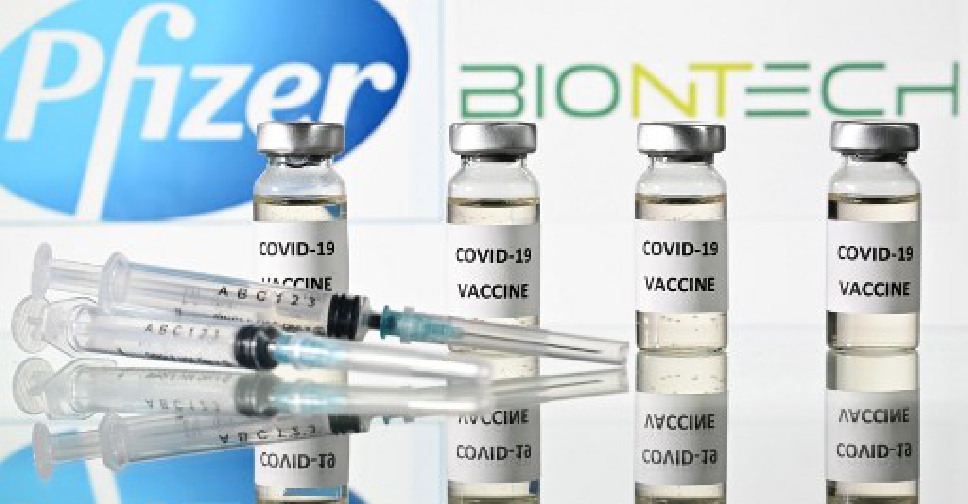
Pfizer Inc and BioNTech SE said on Monday their COVID-19 vaccine induced a robust immune response in children aged between 5 and 11 years.
The companies said the vaccine generated an immune response in their Phase II/III clinical trial that matched what they had previously observed in 16-to-25-year-olds.
The safety profile was also generally comparable to the older age group, they said.
The companies said they plan to ask for authorisation to use the vaccine in children in that age range in the United States, Europe and elsewhere as soon as possible
"These trial results provide a strong foundation for seeking authorization of our vaccine for children 5 to 11 years old, and we plan to submit them to the FDA and other regulators with urgency," Pfizer Chief Executive Albert Bourla said in a news release.
Top US health officials believe regulators could make a decision on whether the shot is safe and effective in younger children within three weeks of the companies submitting a request for authorisation, two sources told Reuters earlier this month.
COVID-19 hospitalisations and deaths have surged in the United States in recent months due to the highly contagious Delta variant. Pediatric cases are also up, particularly as children under 12 are all unvaccinated, but there is no indication that, beyond being more transmissive, the Delta virus is more dangerous in kids.
A rapid authorisation could help mitigate a potential surge of cases in the fall, especially with schools already open nationwide.
The companies' vaccine, called Comirnaty, is already authorised for use in children as young as 12 in many countries, including the United States. The vaccine was originally authorised for emergency use in people 16 or older in the United States in December 2020 and received full US approval in that age group last month.
The 5-to-11-year-olds were given two shots of a 10-microgram dose of the vaccine, one-third the dose size that has been given to people 12 and older. The companies expect data on how well the vaccine works in children 2-to-5 years of age and children 6 months-to-2 years of age as soon as the fourth quarter of this year.
Unlike the larger clinical trial the drugmakers previously conducted in adults, the 2,268 participant pediatric trial was not primarily designed to measure the vaccine's efficacy by comparing the number of COVID-19 cases in vaccine recipients to those who received a placebo.
Instead, the trial compares the amount of neutralising antibodies induced by the vaccine in the children to the response of older recipients in the adult trial.
A Pfizer spokesperson said the companies may later disclose vaccine efficacy from the trial but there had not been enough cases of COVID-19 yet among the participants to make that determination.
The vaccine was around 95 per cent effective in the adult clinical trial, but Pfizer has said that immunity wanes some months after the second dose. US regulators are expected to authorise a third, booster dose of the vaccine for older and high-risk Americans early this week.
The companies said the vaccine was well-tolerated, with side effects generally comparable to those observed in participants 16 to 25 years of age.
Both the Pfizer and Moderna vaccines have been linked by regulators to rare cases of heart inflammation in adolescents and young adults, particularly young men. Pfizer said they did not see any instances of heart inflammation in the trial participants.

 UK inquiry finds 'chilling' cover-up of infected blood scandal
UK inquiry finds 'chilling' cover-up of infected blood scandal
 Iranian President Raisi killed in helicopter accident, state media says
Iranian President Raisi killed in helicopter accident, state media says
 ICC prosecutor seeks arrest warrants for Israeli, Hamas leaders
ICC prosecutor seeks arrest warrants for Israeli, Hamas leaders
 Assange given permission to appeal against US extradition
Assange given permission to appeal against US extradition
 Israel intends to broaden Rafah sweep, Defence Minister tells US
Israel intends to broaden Rafah sweep, Defence Minister tells US




